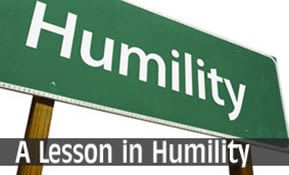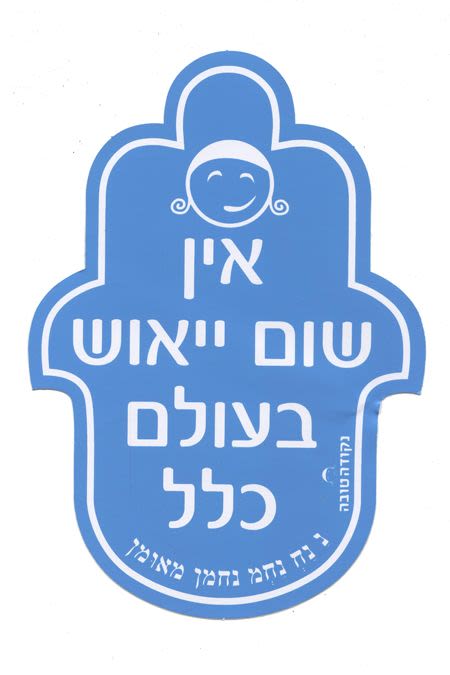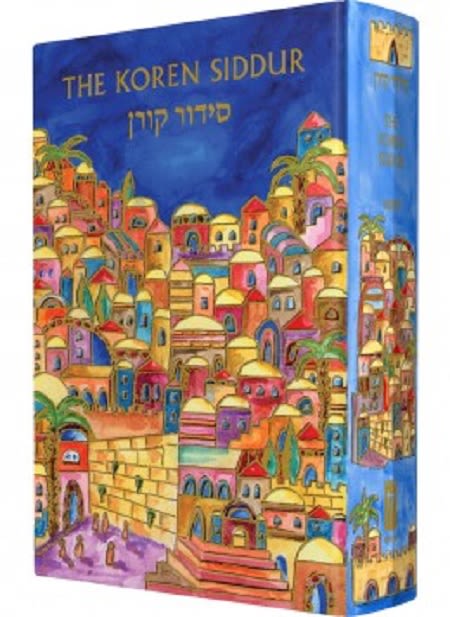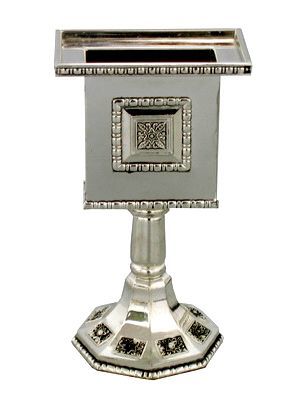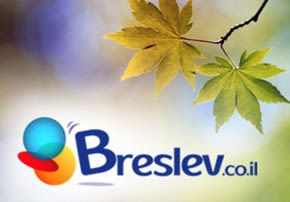
Va’eira: Egyptian Exile
Egyptian Exile: Prelude to the Torah - When a person is suffering, he is able to transcend the limits of his mortal logic...

Parshat Va'eira
Egyptian Exile: Prelude to the Torah
When a person is suffering, he is able to transcend the limits of his mortal logic (i.e., to undergo self-nullification) and to absorb the spirituality necessary to accept the Torah and perform its mitzvot. (The Lubavitcher Rebbe, Rabbi Menachem M. Schneerson, zt"l)
Recognizing God's Revelation
"I revealed myself to Avraham, Yitzchak and Yaakov". (Shemot 6:3)
The Hebrew word for Egypt is "Mitzrayim." Mitzrayim has the same root as the Hebrew word for "boundaries" or "limitations," and is a paradigm of the exile and the essence of our spiritual challenge. The world was created as a dwelling place for God and our souls are a part of God. Yet, we often overlook this as we are caught in the exile of our material world and the daily routine that shapes our thoughts. God, however, does not allow this exile to continue indefinitely. In Mitzrayim, God revealed Himself through the plagues, thereby transforming the Jewish nation's way of thinking. But what about us? God said "I revealed myself to Avraham, Yitzchak and Yaakov" (Shemot 6:3). On this verse, Rashi comments "to the Patriarchs". His comment appears redundant. After all, who were the Patriarchs if not Avraham, Yitzchak and Yaakov? Rashi is telling us that by God's revealing Himself to our forefathers, He made the awareness of His existence a fundamental element in their make-up (and the make-up of their descendants for all time). In every generation, God sparks this awareness by performing acts transcending the natural order. Some are obvious (for example the Gulf War, Entebbe, re-birth of Israel, the fall of Communism) while others are not. Through these acts, God reveals Himself to us, allowing us to transform the limits of our "exile" and take in the awareness of His presence. We must open our eyes to leave our present Mitzrayim. (The Lubavitcher Rebbe, Rabbi Menachem M. Schneerson, zt"l)
Matzos and Four Cups of Wine
"I will release you . . . save you . . . liberate you . . . and take you unto Me as a Nation." (Shemot 6:6-7)
The Parsha uses four expressions to describe God's redemption of the Jewish people: "I will release you; save you; liberate you; and take you unto Me as a Nation."
The Four cups of wine that we drink at the Pesach Seder commemorate these four expressions of redemption. But why do we only have three matzahs? The matzahs represent the first three expressions, which symbolize "redemption from Above" (i.e., through God's efforts, rather than through their own, the Jews were compelled to leave Egypt). Wine symbolizes "redemption from Above and from within" (i.e., in addition to God's efforts, it was up to the Jews to prepare themselves to be worthy of being called God's Nation and accept His Torah). (The Lubavitcher Rebbe, Rabbi Menachem M. Schneerson, zt"l)
Power of a Leader
“And Moshe (Moses) spoke before God, saying: "Behold, the children of Israel have not listened to me; how then shall Pharaoh hear me?" (Shemot 6:12)
Prior to this verse, the Torah (Shemot 6:9) states the reason the Children of Israel did not listen to Moshe: "For anguish of spirit, and for cruel bondage." So why did Moshe deduce from this that Pharaoh would refuse to obey him?
Moshe realized that a leader's power is derived from his people. If he had not succeeded in penetrating his people's hearts, he would not be able to achieve anything on their behalf (Sefat Emet zt"l).
A Profound Impression
"And God spoke to Moshe and to Aharon and gave them a charge to the Children of Israel." (Shemot 6:13)
Although the Children of Israel refused to listen, because of impatience of spirit and cruel bondage, God commanded Moshe and Aharon to continue speaking with them, for God's words must, of necessity, leave a profound impression. They may not take effect at once, but eventually they will accomplish their purpose, for holy words are never lost on man. (Sefat Emet zt"l).
Paths of Peace
“And Aharon's rod swallowed their rods.” (Shemot 7:12)
God said: "If Aharon's serpent will swallow the serpents of the Egyptians, there will be nothing remarkable in that, for serpents normally swallow each other. Therefore let it resume its original form and then swallow their serpents" (Midrash Rabbah).
The Torah's "ways are ways of pleasantness, and all its paths are peace" (Mishlei 3:17). Our purpose in this world is to create light, not to battle darkness. Nevertheless, there are times when we are forced to resort to battle, when we must vanquish those who seek to vanquish us. Thus Moshe, the gentle shepherd of Israel, and Aharon, the ultimate man of peace, find themselves in the role of "judge and chastiser of Pharaoh," crushing the might of Egypt and obliterating its icons and myths.
Therein lies the lesson to be derived from the fact that Aharon's rod swallowed the "serpents of the Egyptians" after it had reverted back to its original form, rather than as a serpent itself. For even when waging a war, the Jew is not a warrior. Even when he consumes the serpents of the enemy, he is not a serpent himself, spewing poison and hate. His instrument of vengeance is as devoid of vengeful feeling as a petrified rod, as cold to the rage of war as a lifeless stick. (The Lubavitcher Rebbe, Rabbi Menachem M. Schneerson, zt"l)
Truth
"God (God) spoke to Moshe and said to him, I am God." (Shemot 6:2)
After God sent Moshe to redeem the Jews from Egypt, Moshe's mission appeared to have ended in dismal failure. Not only were the Jews still slaves, but Pharaoh forced them to work even harder than before. Moshe, hurt, disappointed and under great pressure, bitterly complained to God. The Torah, which never wastes words, records this confrontation in great detail. Why is this showdown between God and Moshe given so much attention? In the following paragraphs, based on the teachings of Rabbi Nachman and his student, Reb Nosson, we will discuss this incident's important lessons.
Moshe's Connection to Truth
When God wanted to appoint Moshe as His agent to bring the Jews out from Egypt, Moshe emphatically refused. God, however, forced Moshe to carry out this mission. Reb Nosson explains why Moshe was obstinate and initially rejected this all-important role. Each Tzaddik is strongly connected to truth, through which the world was created and upon which it was established, as the Talmud relates, "Rabban Shimon ben Gamliel says, 'The world endures on three things–justice, truth, and peace'" (Avot 1:18).
Moshe was a man of truth, and that prevented him from accepting his mission, despite the fact that God Himself, the source of all truth, had commanded him to redeem the Jewish nation. Moshe denied his sacred mission because he prophetically foresaw that the results of all his efforts to bring the Jews closer to God would never last. He saw that the Jews would rebel against God ten times in the desert as the verse says, "[They, the Jews in the desert] have tested Me (God) these ten times" (Bamidbar 14:22).
Moshe, in his holy wisdom, knew that it is extremely difficult to bring total redemption to the Jews. In other words, due to the physicality of this world, it is almost impossible for anyone to sustain the high spiritual sensitivity necessary for enjoying a close and intimate relationship with God. Moshe had reached the highest levels of humility, indicating that he had also reached the highest levels of truth, for he had come to realize that man is nothing, that he is a mere creation of God, as the verse says, "Who am I that I (Moshe) should go to Pharaoh and that I should take the Children of Israel out of Egypt [I am a mere mortal and I have no power of my own to do anything, except that which God enables me to do]?" (Shemot 3:11).
Reb Nosson explains that Moshe spoke these words in sincere humility motivated by truth. He truly felt that his role in bringing the Jews out of Egypt was superfluous. Therefore he declined to carry out the mission. Indeed, God can accomplish everything without man's effort. Nevertheless, God insisted that Moshe fulfill his mission, and forced him to redeem the Jews.
Pharaoh Twists the Truth
God is the source of all life; nothing can exist without Him or without the spiritual energies with which He nourishes the world, such as the energies of truth. There is no human being that can live without some form of the truth. Therefore, even the wicked possess fragments of the truth. However, the wicked are so skilled at their deceptions that they are able to twist the crumbs of truth they possess and present it as the entire loaf–as the absolute and total truth.
This point was graphically illustrated when Moshe and Aharon confronted Pharaoh and asked him why he had forced the Jewish slaves to work harder. Pharaoh, as is typical of the wicked, not only refused to accept any responsibility for making the Jews work harder, but twisted the small fragment of truth that he possessed – that Moshe and Aharon were the one's demanding the Jews freedom – and used it to place all of the blame upon them.
"The king of Egypt [Pharaoh] said to them, 'Moshe and Aharon, why do you disturb the people from their work [implying that Moshe and Aharon were troublemakers, trying to prevent the Egyptians from exercising their legitimate rights to benefit from their Jewish slaves]? Let the work be heavier upon the men and let them engage in it; and let them not pay attention to false words'" (Shemot 5:4, 9).
Pharaoh responded defiantly to Moshe and Aharon's demand that the Jews be freed and even blamed them for their added suffering in order to dismiss their assertion that the Jews were entitled to their freedom. Pharaoh asserted that Moshe and Aharon's claims were based on a lie, and that the Jews were not unjustly enslaved. Pharaoh was well aware of the truth. However, he distorted it to advance his own selfish interests – he wanted the Jews to serve him instead of serving God.
Only God can Perceive the Highest Level of Truth
God said to Moshe, "Although you have been shown more of the truth about Me than the Patriarchs were shown, you are still unable to understand the absolute truth of My ways. In the way that you, Moshe, understand the truth, the following is true: Pharaoh made the Jews' work even harder, and therefore, the Jews will not listen to you. From these facts, you logically deduced what will happen in the future, and therefore you did not want to accept your mission. Now that all the things you thought would happen have occurred, you complain to Me.
“Despite the truth of what you see, the Jews will be redeemed from Egypt. Therefore, you should nullify your thoughts to Mine, and believe that I will enable you to successfully complete your mission. What will happen to the Jews in the future, after you pass away, is of no concern to you, for whatever will be with the Jews will ultimately be for their benefit and I will make sure, through My great compassion for them, that Israel will never be destroyed, and they will live forever! This is the highest level of truth, which is beyond human comprehension, therefore I say to you, 'I am God' (Shemot 6:2), meaning I alone can understand the highest level of truth and I therefore guarantee that everything will turn out as I want it to."
Although it is impossible for any human to understand the absolute truth of God, everyone, from the greatest Tzaddik to the simplest Jew, is capable of serving God based on the spiritual energies of truth provided to them by Heaven. After Moshe complained to God about how badly things had worked out, God spoke to him, instilling him with higher levels of truth. Moshe realized that it was best to trust in God and humbly submit to His wishes. Once Moshe completely humbled himself to God's will, with the help of the increased spiritual energies of truth that God had given him, he was able to become unified with God and draw forth all of the energies necessary to redeem the Jews from Egypt.





